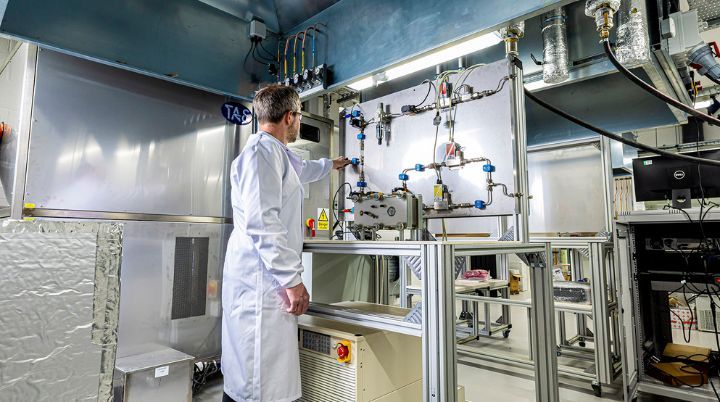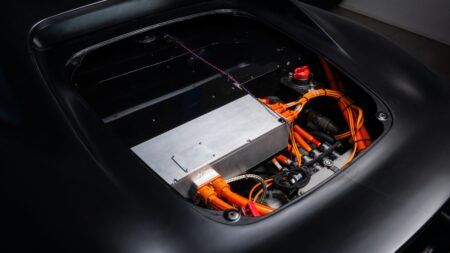More than £4 million of new hydrogen testing contracts have been secured within the Centre for Advanced Low-Carbon Propulsion Systems (C-ALPS) at Coventry University. The £50 million research centre is a joint investment between Coventry University and global engineering consultancy FEV.
The centre is working with some of the world’s leading engine and vehicle manufacturers, electrification start-ups and UK and European research consortia to develop new solutions for e-mobility start-ups and zero-emission drive systems. UK£3 million has been jointly invested over the last two years in the creation of a state-of-art hydrogen research, development and testing facility.
C-ALPS’ five world-class test beds have also been upgraded to provide an environment that can test output up to 650kW. A new tie-up agreed with hydrogen refuelling businesses, Element 2, will ensure the centre has the quantity of low carbon Fuel Cell grade (ISO 14687) hydrogen it requires.

Simon Shepherd, Director of C-ALPS, said, “The latest contracts take the total value of joint projects active and completed at C-ALPS to more than UK£20 million. This, along with the level of interest we are seeing from collaborators, is a sure sign that we have created the environment and expertise required to support UK companies in meeting future propulsion technology demands.”
C-ALPS says the recent UK£4 million contract will help deliver more employment opportunities, creating a real-world training environment for engineers and research specialists. Shepherd added, “Our approach has been for the university to make the initial investment in cutting-edge facilities to support high-impact research, with FEV offering additional financial and technical support and the long-term business case for the investments through the provision of commercial services for customers working on products closer to manufacture.”

“At C-ALPS, we offer organisations, from both research and industry, the opportunity to put sustainable hydrogen propulsion systems through their paces throughout the entire development cycle, from component up to system performance development,” said Jörn Behrenroth, Managing Director of FEV UK. Behrenroth added, “Access to a continuous supply of hydrogen from Element 2 is a key advantage for the centre right now, providing reliable and long-term testing for both fuel cell and combustion-based hydrogen propulsion systems.”
C-ALPS also hosts Coventry University’s Hydrogen Energy research group, which supports the Centre’s commercial activities and works in parallel on high-impact, industrial collaborative research projects. These range from fuel cell stack instrumentation, diagnostics, and thermal management to the development of next-generation materials, processes, and electrolyser cell designs for green hydrogen production.
Seven engineers have been taken on as FEV employees – three of whom have come through the university’s undergraduate courses – with 10 PhD students working on joint projects sponsored and co-supervised with FEV in the UK and Germany.





